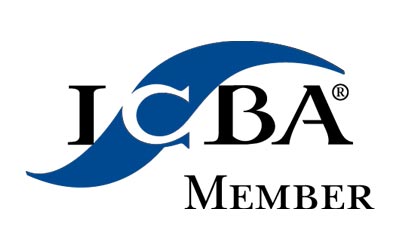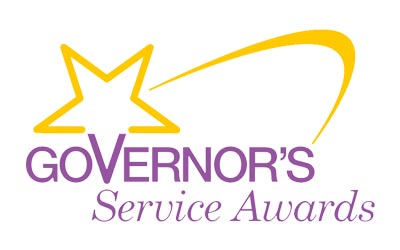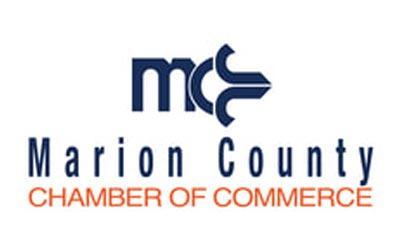There are many milestones while raising a child. As your child becomes a teenager, the milestones start to speed up: first job, first driver’s license, high school graduation, and so on. Somewhere in there, your teen may be ready for their first checking account and debit card. After all, their increasing independence means you aren’t always there to pay the bill when they go out for lunch with friends, go to a concert, or want to buy something. If you think your teen is ready to use a debit card, it can be a great tool for teaching them financial literacy and responsibility. In this article, we’ll cover everything you should consider before getting your teen their first debit card.
At What Age Can a Teen Have a Debit Card?
The answer to this question will vary depending on your readiness as a parent as well as the rules of your financial institution. Of course, just because your teen is technically eligible for a debit card doesn’t mean they’re ready to take on the responsibility of one. Let’s look at what to consider before greenlighting a debit card for your teen.
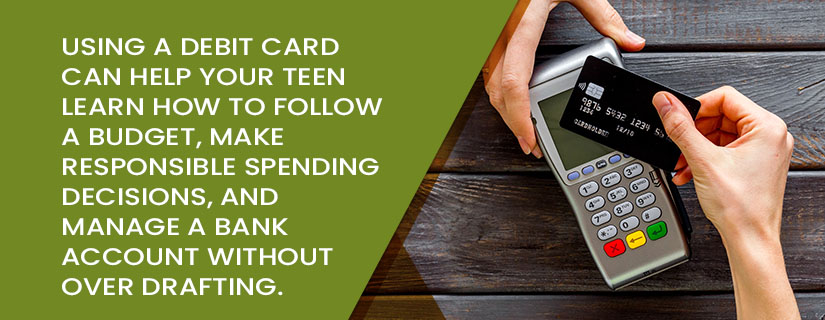
Why Consider Giving Your Teen A Debit Card?
For teens and adults alike, carrying a debit card is a convenient way to make every day and online purchases. Some businesses are cashless, meaning the only way to pay is with a debit or credit card.
Digital Payments are on the rise, and we carry less cash
Digital payments can be more secure and safer than carrying cash. A debit card can be linked to the digital wallet app on your smartphone, enabling you to make more secure purchases. When you pay with digital wallet, your personal and card details aren’t visible.
Online banking makes it easy to track spending
Gone are the days of just using a debit or credit card and having to save receipts to keep track of your spending. You can track your spending and check your account balance anytime with online and mobile banking.
You will help your teen learn financial responsibility
Using a debit card can help your teen learn how to follow a budget, make responsible spending decisions, and manage a bank account without over drafting.
Essentially, you’re not just giving them a debit card; you’re giving them a checking account. If they also have a kids’ savings account, they can watch their funds earn interest and grow, and learn how to transfer money between checking and savings.
Things To Consider Before Giving Your Child A Debit Card
Now that you know the potential benefits of giving your teen a debit card, it’s time to figure out if your teen is ready.
Is your teen financially ready?
To answer this question, ask yourself if your child has some level of financial literacy and understanding of how money works. If not, this is an opportunity for you to educate your child about personal finance basics.
Are they good with spending cash?
If they’ve already demonstrated a responsible handling of cash, they are likely also responsible enough for a debit card.
Who Will Monitor the Account?
Your teen should monitor their own account regularly, not count on you to alert them when the balance gets low. However, as a joint accountholder, you may want to check the account periodically and provide guidance as needed.
Does Your Teen Have A Source of Income?
Whether it’s an allowance or a part-time job, opening a checking account and using a debit card usually works best when the teen has a regular source of income coming into the account. You don’t want your child to start spending all their savings. If you see them continue to save while they’re spending money, that is a good sign that they can handle a debit card.
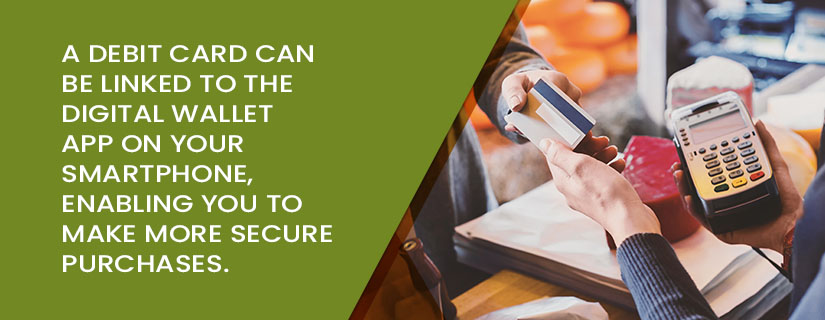
Educate Them About Online Shopping Safety
68% of teens make online purchases, so it’s important to educate them about cybersecurity when shopping online. Review tips for preventing identity theft with your teen, such as:
- Create strong and unique passwords for every online account you have.
- Keep your computer’s anti-virus software updated.
- Always install software updates on mobile devices.
- Set up multi-factor authentication when possible.
- Don’t enter sensitive personal or financial information when using public Wi-Fi.
- Check your bank account regularly and report any suspicious transactions immediately.
Teach them How to Safely Use A Debit Card
It’s also good to know how to protect your debit card using it out into the world. This includes practices such as:
- Sign your card.
- Memorize your PIN and don’t share it with anyone or write it on the card.
- Try to only use bank-issued ATMs to withdraw cash.
- Link your debit card to your phone’s digital wallet, so you don’t even have to carry the physical card.
If Your Teen Isn’t Ready for A Debit Card
Sometimes it’s just not the right time to take on a new responsibility like a debit card. If you don’t think your teen is ready, work on getting them ready instead.
- Help them improve their financial habits.
- Consider working with them to create a budget and track their spending.
- Encourage them to find a part-time job or take on piecemeal work such as babysitting, dog walking, and yard work.
- Set them up with a teen checking account, but don’t give them a debit card yet. Let them see how the account works and give them practice managing their money.
- Start them out with a prepaid debit card to practice good habits while maintaining clear limits.
Get Your Teen Started with a Debit Card Today!
If the time is right for your teen to get a debit card, have them open a checking account with First Exchange Bank. We have multiple options to fit your teen’s financial needs. To open a checking account for your teen with First Exchange Bank, visit one of our seven branches in White Hall, Mannington, Fairmont, Morgantown- Suncrest, Morgantown- Pierpont Landing, Hundred, and Fairview or contact us for more information. Our friendly employees are ready to provide excellent personal service and address all your questions and concerns. We are excited to help your teenager learn financial literacy skills with their first checking account!




